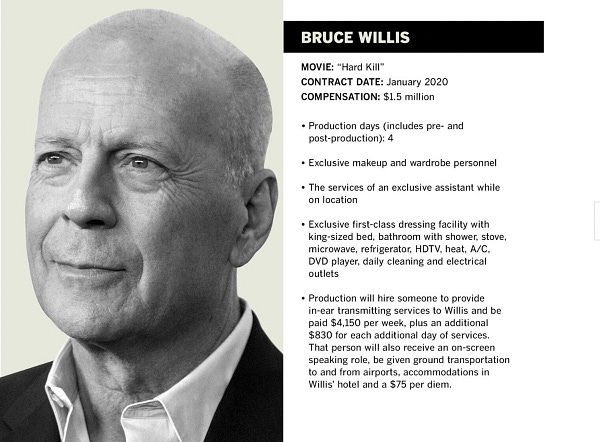What Happened Today: July 07, 2022
Scandals finally prompt resignation of Boris Johnson; construction of U.S. manufacturing facilities up 116%; Too Much Magic in Medical Mushroom Businesses
The Big Story
British Prime Minister Boris Johnson announced Thursday that he would finally step down and resign from his post after the latest scandal to rock his cabinet led to the resignation of some 50 government officials who declared they no longer had faith in Johnson’s leadership. “[It is] clearly now the will of the parliamentary Conservative Party that there should be a new leader of that party and therefore a new prime minister,” Johnson said in his resignation speech, though he stopped short of admitting fault for the scandals that led to his government’s collapse.
The latest incident follows several months of explosive scandals and involved allegations that a lawmaker in Johnson’s Conservative Party, Chris Pincher, drunkenly groped two men at a bar last week. Pincher had faced separate, earlier allegations of misconduct before Johnson assigned him a senior position—complaints that Johnson at first denied knowing about when he brought Pincher into his government in February. Reports to the contrary forced the prime minister to walk back his previous statement, admitting he should not have appointed Pincher to a senior government role while aware of his past conduct.
The Pincher affair arrived shortly after Johnson’s partygate scandal, which involved nationwide outrage when Johnson at first denied and then sheepishly confessed to the rowdy drinking parties in his government office with staffers while the rest of Britain endured lockdowns during the COVID-19 pandemic.
A big personality that gravitated toward extremes, Johnson maintained careers in media and politics before ascending to the nation’s highest political office in 2016, largely on the strength of his efforts leading the Brexit charge to remove Britain from the European Union. All along, he has courted controversy and fueled critics who’ve castigated his lack of professional integrity. Johnson was fired from a previous political post because he lied about an extramarital affair; as a journalist at The Times of London, he was sacked for falsifying a source’s quote. His editor at The Telegraph, Max Hastings, said Johnson was “a man of remarkable gifts, flawed by an absence of conscience, principle, or scruple.”
Read More: https://www.reuters.com/world/uk/uks-johnson-digs-ministers-desert-government-2022-07-07/
In the Back Pages: A Little Too Much Magic in Launch of New Medical Mushroom Businesses
The Rest
→ Over the past year, U.S. manufacturing construction grew 116% compared to the year prior. That boom comes as non-manufacturing construction grew just 10% over the same period. The recent push to bulk up domestic operations is still a new phenomenon and will only make a small dent in the total 8 million jobs that have left U.S. shores for overseas destinations since the previous peak of American manufacturing. Likewise, the increasing use of automation and AI software means American factories are smaller operations. Still, executives are in the midst of “a major re-assessment of supply chains in the wake of port bottlenecks, parts shortages, and skyrocketing shipping costs that have wreaked havoc on corporate budgets in the United States and across the globe,” according to Bloomberg. And that’s brought chip factories to the American Southwest and new steel plant facilities across the South.
Read more:
→ New York’s ambitious plans to decarbonize the state by 2030 are being complicated by the energy needs of its nearly 20 million residents, with the state’s Independent System Operator (ISO) issuing a warning on July 1 that New York’s energy resources “are already close to minimum reliability requirements” and could soon be dangerously low. “A sufficient fleet of new generation resources ... with the appropriate reliability attributes, must be available before the existing, traditional generators retire voluntarily or are forced out of service,” the ISO said. This comes as consumers, already facing rate increases because of inflation, have no appetite to shoulder the burden of transitioning to green energy sources. The cost of transitioning from fossil fuels to green energy sources “will be orders of magnitude larger than what the state has ever invested, and ratepayers cannot be expected to foot the lion’s share of the bills for a problem they are not responsible for creating,” said the New York Public Interest Research Group, a nonprofit organization founded by Ralph Nader in 1973.
→ In an effort to calm Europe’s chaotic energy market, which imported 45% of its natural gas from Russia until the West recently imposed sanctions, France has announced that it will be nationalizing Électricité de France (EDF), one of the continent’s largest power companies, with the French government increasing its stake in the EDF from an 84% ownership position to full ownership. “We must have full control of our energy system and its performance. We must assure our sovereignty faced with the consequences of the war,” said French Prime Minister Élisabeth Borne. The European Union also announced on Wednesday that it will begin labeling gas and nuclear power plants as climate-friendly. Taken in tandem, these moves signal France’s (or President Emmanuel Macron’s) efforts to lead a post-Russian energy regime in Europe that, at least for the time being, will be less focused on renewable energies than on energy independence.
→ GRAPH OF THE DAY:
According to a study published in The Journal of General Medicine, “Between 2013 and 2019, the number of gender dysphoria diagnoses per 100,000 enrollees increased by 695% from 8.1 to 64.4” and the “number of hormone therapy users with gender dysphoria diagnoses per 100,000 enrollees increased similarly by 781% from 2.7 to 23.8.” As Ben Appel noted in an essay on Substack, “Clearly, there is a lot of money to be made in ‘gender-affirming’ care.”
Read More:
→ After a Columbia University mathematics professor accused the school of using spurious data to boost its rankings on the U.S. News “Best Universities in America” list, the university has announced that it will not be participating in this year’s rankings as it “embark[s] on a review of our data collection and submissions process,” the school’s provost, Mary Boyce, said. The mathematics professor who accused the school, Dr. Michael Thaddeus, made evidence-based claims that the school had submitted deceptive data that made the average class size smaller, the teaching budget greater, and the faculty more educated. While the provost claims that Columbia’s “ongoing review is a matter of integrity,” Dr. Thaddeus says the school has yet to meaningfully respond to his criticisms.
→ Map of the Day:
“Europa regina,” a 1537 map by Johannes Putsch, was the first to depict Europe as a queen in royal regalia—a representation that would kick off a new fad for Europe’s cartographers. It was also the first map of Europe that did not connect Europe to Asia and Africa and situate Jerusalem at its center.
→ In its hazardously ham-fisted response to the country’s deepening economic crisis, Sri Lanka’s government has raised its standing deposit facility rate by 100 basis points to 14.50% and its standing lending facility rate by 100 basis points to 15.50%, their highest levels in 20 years, in an effort to combat the country’s surging inflation. This has left citizens and businesses with little access to funds at a time when fuel, energy, and food shortages are converging to create a humanitarian crisis. Because of power shortages, Sri Lanka’s schools have been shuttered for weeks, and mandated power outages now blanket the country for three hours daily.
→ Bob Dean, the owner of several nursing homes in Louisiana, was arrested last week and charged with eight felony counts of cruelty to persons with infirmities, five felony counts of Medicaid fraud, and two felony counts of obstruction of justice. As Hurricane Ida swept across Louisiana, Dean’s nursing homes were evacuated to a warehouse where his employees sent him increasingly urgent messages that “people are dying. We need to send them somewhere they can be cared for medically.” Dean told those employees to “calm down” and not to move the suffering seniors from the facility. As the condition of the 800 nursing home residents worsened in the warehouse, Dean’s employees bucked his orders and sought medical attention for the people in their care. Dean now faces the possibility of going to prison for the rest of his life.
→ NUMBER OF THE DAY: $11 million for 8 days of work, and $100,000 to cover expenses for a family vacation in the Caribbean.
That’s all part of the package that Robert De Niro received for his deal to appear in the film Savage Salvation, details of which were included in a new Los Angeles Times investigation into a spate of allegations against Hollywood producer Randall Emmett. Unlikely to win critical acclaim for his role in the poorly received Savage Salvation, De Niro should nonetheless heap praise on his agent for negotiating such a plush deal. Al Pacino, who did a similar stint for his effort on American Traitor, a role that would require him “going for something between [A] C, and B,” only managed a cool $6 million for a few weeks on set, with no mention of a free vacation after filming.





Additional reporting and writing provided by The Scroll’s associate editor, David Sugarman
A Little Too Much Magic in Launch of New Medical Mushroom Businesses
Following the recent opening of a spate of recreational cannabis dispensaries, New Jersey could soon be home to a massive industry for psilocybin—the active compound in psychedelic mushrooms. New legislation, known as the Psilocybin Behavioral Health Access and Services Act, follows similar moves in several other states seeking to decriminalize psilocybin and other psychedelic drugs but goes several steps beyond its counterparts. While other locales dip their toe into the drug decriminalization water, New Jersey Senate President Nicholas Scutari is jumping right in, with a plan that would allow residents to legally grow and share psychedelic mushrooms. In effect, Scutari’s bill would birth the grassroots counterpart to the regulated state-wide therapy system that he also sees as part of New Jersey’s booming alternative medicine business.
As the architect of New Jersey’s push into medicinal and now recreational cannabis, there’s good reason to suspect that Scutari will find similar success on the psychedelic mushroom front. Scutari and other backers of the New Jersey initiative say their aim is to reduce the number of non-violent criminals in prisons for drug offenses while expanding access to psychedelic drugs for medical purposes. But there is also hundreds of millions of dollars in potential revenue tied up in these efforts. If nothing else, the legalization of psychoactive drugs has been incredibly profitable for the 32 states allowing medical cannabis, with many already opening up their doors on recreational weed shops. One recent study of the U.S. marijuana industry estimated total sales of nearly $50 billion nationwide by 2027. For New Jersey alone, researchers believe a fully saturated legal cannabis market will net the state somewhere between $118 million and $175 million a year in taxes and fees, while creating thousands of jobs for state residents. A psychedelic mushroom industry promises to add to that pot of money. What’s alarming, however, is the lack of any discussion of how the explosive growth of new recreational drug businesses might exacerbate the ongoing drug overdose epidemic that claimed more than 107,000 lives in 2021. Indeed, it would seem as though the push for decriminalization and drug therapy regimes are occurring in a vacuum, with no consideration for how wide access to drugs or narratives of “risk free” drug therapies could increase the possibility of a user experimenting with any of the other street drugs now frequently laced with deadly fentanyl.
Putting aside for a moment implications for the U.S. drug overdose epidemic, we have good reason to be skeptical of the unchecked celebration of psychedelic mushrooms as a “health and wellness” therapy safe enough to grow in your own backyard or take in a medical office under the supervision of what amounts to a retail store operator.
The goal in New Jersey is to create a statewide network of psychedelic mushroom “service centers” on the grounds that those over 21 years of age should have access to “supported psilocybin experiences to alleviate distress, provide preventative behavioral health care, and foster wellness and personal growth.” For thousands of years, mushrooms have been integral for cultures that use the psychedelic substances in religious rituals or social gatherings. Aside from their traditional and recreational uses, there’s also early research suggesting that they are beneficial in treating depression, anxiety, and addiction to other substances. The Food and Drug Administration went so far as to identify psilocybin as a potential “breakthrough therapy” in 2018, a designation that could speed up the federal decriminalization of the drug for medical purposes.
Ahead of New Jersey, Denver has new legislative initiatives underway that would legalize the recreational use of mescaline and psychedelic mushrooms. “We have data that it’s safe, that there’s not a public health and safety risk in those cities that have decriminalized them so far,” said Nicole Forester, a leader of the Denver effort. “We know that safe use is happening outside of regulated frameworks.”
But the data is far from settled. Most bills have only been recently passed, and not enough time has elapsed to comprehensively evaluate the public health outcomes of decriminalizing psychedelics. For all their potential, in fact, there’s much that remains unknown about how effective or even safe psychedelic mushrooms would be if widely and easily available to the population at large. Dr. Roland Griffiths, a scientist at the Johns Hopkins Center on Psychedelic and Consciousness Research, found that among 2,000 users of psilocybin, 11% said their worst experience with the drug involved putting their own or someone else’s safety at risk. The study also found that 10% of users also had enduring psychological symptoms that had lasted at least a full year.
Poised to soon open their own psilocybin “service centers,” Oregon will offer its residents psychedelic therapies under the supervision of approved service center employees. But these workers are not doctors, nurses, or healthcare workers in any real sense. All that Oregon requires of those who wish to obtain an Oregon psilocybin service license is that they have no “disqualifying criminal convictions.” As for educational requirements, operators complete a training course (sold and administered by third-party trainers) and possess “a high school diploma or its equivalent. … No additional degrees or certifications are required.”
Building a massive, poorly regulated service economy for psychoactive drug therapeutics will no doubt create several downstream effects, not least of which includes a flooding of the drug into the gray market, where it’s significantly easier for younger customers to purchase. Online, it should set off a deluge of social media memes from mushroom-trip gurus and fast-talking TikTok marketers selling people on the healing properties of a psychedelic journey.
Treated carefully and in the proper context, drugs like psilocybin may indeed provide real benefits. But the warp-speed embrace of decriminalizing drugs for their medical properties is now occurring without any deference paid to possible risks, even while a significant body of research suggests we should proceed with caution. One study conducted by the Substance Abuse and Mental Health Services Administration found that people who suffered from issues with mental health were three times as likely to have a drug problem. For those who do end up suffering from drug addiction, 9 out of every 10 had tried drugs before they turned age 18. And while psilocybin mushrooms aren’t inherently addictive, it’s a mistake to give woefully unregulated pharmaceutical startups and retail operations the responsibility to tell the narrative that powerful psychedelics are fully vetted, risk-free therapies while other popular drugs are the problem—no matter how much money there is to be made.






Psilocybin becoming legal in New Jersey who cares. Alcohol is the "drug" the "substance" most abused in this country. Easily gotten, cheap and advertised as something cool from TV to the internet. Making something illegal does not keep people fromusing it - in fact for some youth it becomes an act of defiance against the "establishment." Legalizing psilocybin will keep people out of prison (where we waste so many tax dollars) in addtionwe need to educate people about the abuse of this substance. We saw what Prohibition did for alcohol abuse - nothing.